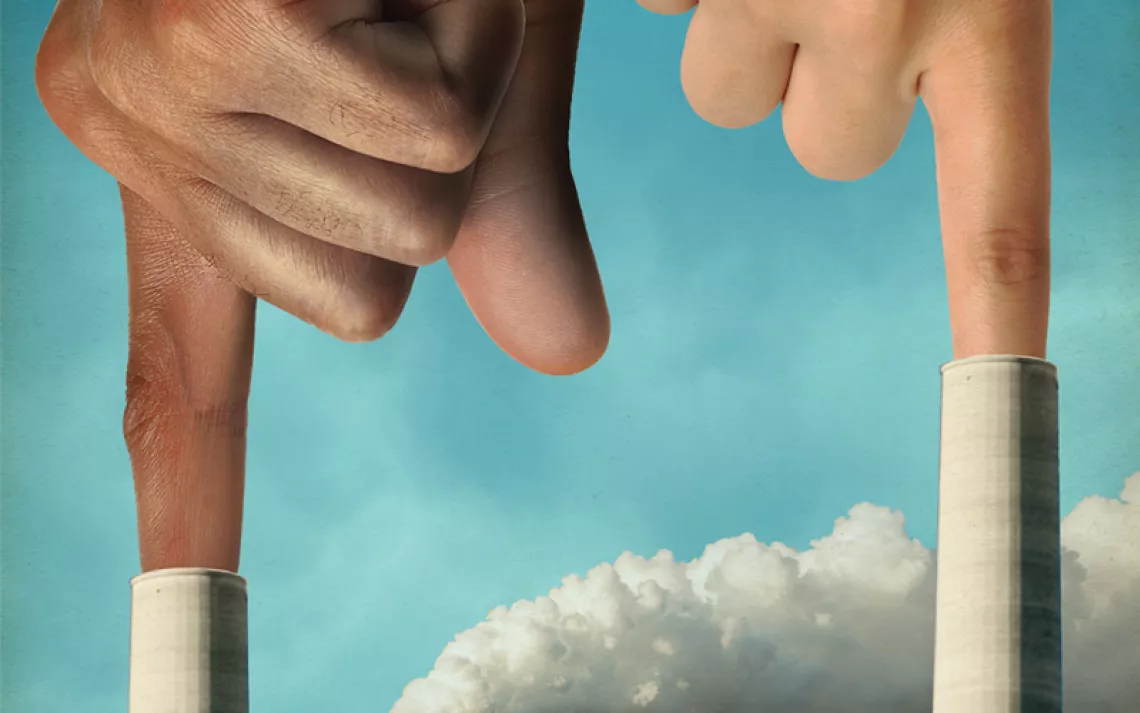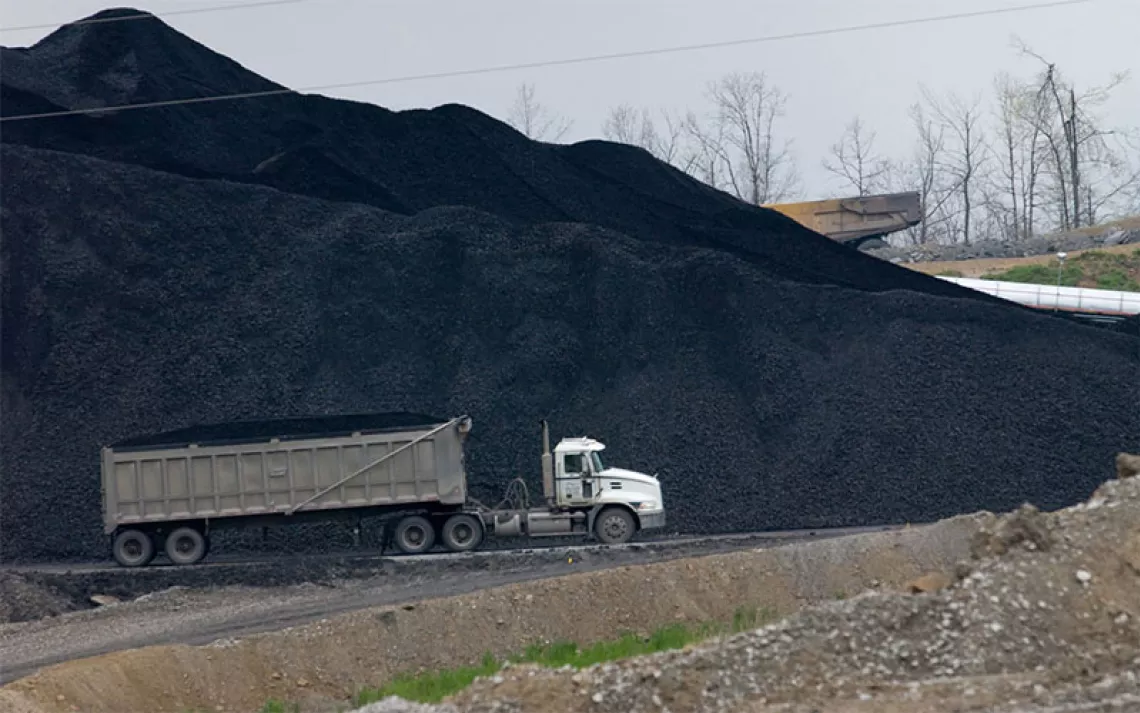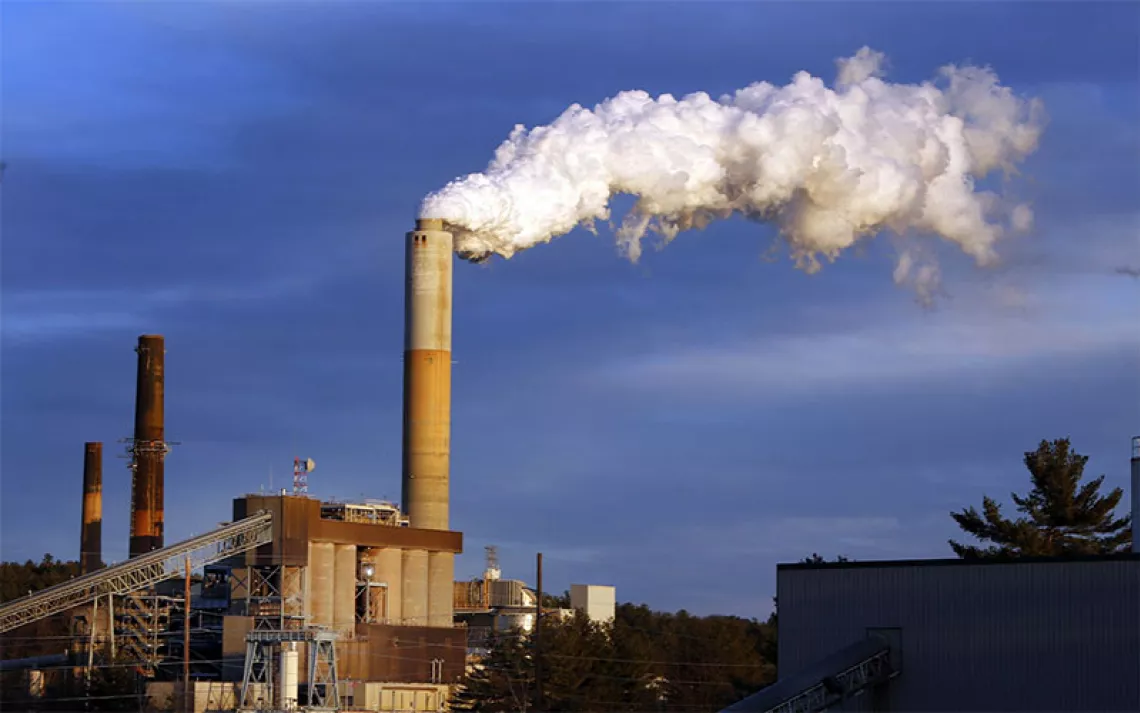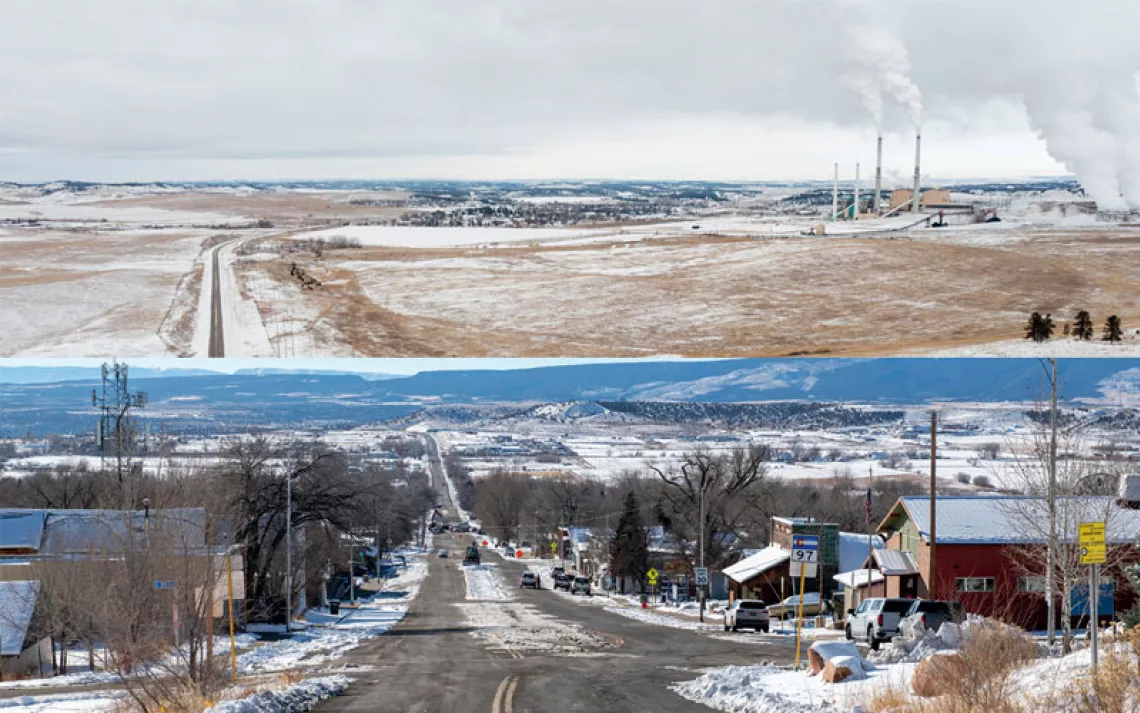Sorry, Trump, Coal Isn't Coming Back
No one wants to pay more for the worst choice

Photo by Henrik Ham
Photo by Henrik Ham In the twisted world of Donald Trump, where it seems almost every immigrant not from Norway is a suspected criminal and math teachers are potential SWAT tacticians, one consistent fantasy is that the country should embrace "beautiful, clean coal." Simply put, there is no such thing, and as the president's sound bite becomes official policy, his delusions pose a huge threat to our economy and our environment.
Fortunately, most of us know better. When Americans are asked in polls what kinds of energy our government should prioritize, invariably a majority—regardless of political affiliation—say renewables. And a solid majority of people in this country agree that the United States should take "aggressive" action on climate change. Yet instead of embracing clean energy, Trump is throwing a lifeline to the coal industry through actions like repealing the Clean Power Plan.

It won't work. Coal is in irreversible decline in this country for a simple reason: No one wants to pay more for the worst choice. Even among dirty fuels, coal causes the most obvious harm to the environment and to human health, from mercury poisoning to black lung disease. Just the soot from coal-fired power plants is responsible for an estimated 7,500 premature deaths annually in the United States, down from roughly 13,000 annual deaths a decade ago. And coal is no bargain. A new wind or solar power plant is cheaper to build than a new coal plant, when measured by cost per megawatt-hour.
Sure, the technology exists to make coal marginally cleaner—but that makes it much more expensive, because power plant owners have to pay for costly (and barely proven) systems like carbon capture. So electric utilities are forced into an awful decision: pay more and kill less, or pay less and kill more.
Donald Trump's election did nothing to change this calculus. During the Trump administration's first year, the Sierra Club's Beyond Coal campaign announced the scheduled retirement of a coal-fired power plant an average of once every 19 days. More coal capacity was retired in the first 45 days of 2018 than in the first three years of the Obama administration. Since 2010, the Sierra Club has helped prevent at least 5,500 premature deaths every year through our advocacy.
Whether coal will rebound or not (it won't) isn't the real issue. These are the questions we should be asking: What will replace it? And how will the transition affect the same coal-mining communities that received spurious promises from candidate Donald Trump that he could bring coal back from the brink? For the answers, we need only consider what most Americans agree on: Investing in clean, renewable energy makes more sense than going from one dirty fuel (coal) to another (gas).
Not only are renewables far better for our climate, environment, and public health, but they also offer more potential for job creation. Today in the United States, the wind and solar industries combined employ about 470,000 people, while the coal industry employs no more than 175,000, including both miners and power plant workers.
Of course, any government that insists on disregarding the wishes of its people is likely to become unpopular or (in this case) even more unpopular. Sure enough, opposition to Trump's terrible policies has been fierce. Hundreds of thousands of Sierra Club members and supporters have taken part in the struggle against dirty fuels, and for a clean energy economy, through efforts like our Ready for 100 campaign.
Coal is not coming back. We're still making progress on clean energy and climate action in spite of Trump and his enablers. Would we prefer a president who wants renewables to succeed and an administration that respects the mining communities that sacrificed so much for so long to power this country? Of course. Something tells me we might not have long to wait.
This article appeared in the May/June 2018 edition with the headline "Sorry, Trump, Coal Isn't Coming Back."
This article has been updated since publication.
 The Magazine of The Sierra Club
The Magazine of The Sierra Club



